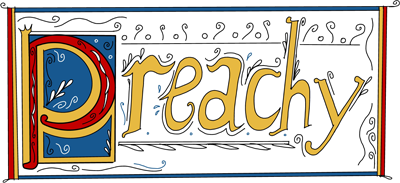
The Stoic’s Embrace of RNG
My father didn’t expect to fall out with the Army after 32 years of service. But, facing disciplinary action on the cusp of his retirement, he took leave while the Army reviewed his transgression—confidential information had leaked to the media under his leadership, and he took the blame. It was a blemish on an otherwise spotless career.
He described this experience as lonely and harrowing: After years of service, he felt that the Army betrayed him. When he started his official leave, he was stationed away from our family, in Virginia, serving out the last years of his career while we lived our lives in New York. In that solitude, my father turned to the memoirs and biographies of other lifelong military men. The first that appealed to him was Vice Adm. James Stockdale’s Courage Under Fire: Testing Epictetus’s Doctrines in a Laboratory of Human Behavior.
In his book, Stockdale describes undergoing his prisoner of war experience with the guidance of Marcus Aurelius, another military man, from his book Meditations; after Marcus Aurelius, my father read Epictetus, an original Greek Stoic. As opposed to his Christian upbringing, Stockdale, Marcus Aurelius, and the Stoics seemed to validate my father’s complaints of having endured a lifetime of literal and figurative mudslinging from the Army. He had built bridges in muddy Bosnia during the Serbian conflict. He had navigated minefields in Iraq during the Gulf War. He had returned to Afghanistan when IEDs were everywhere A Christian upbringing reconciled a harsh life with the idea of later payoff in Heaven; Stoicism confronted life’s shit and embraced it. According to the Stoics, suffering in life is a certainty, and the only response is to harness our capacity as rational, feeling humans and adjust our responses accordingly.
I see how this ethic appealed to my father, someone who needed to come to terms with a life defined by violence, war, and an otherwise martial existence. When he finally retired, he took up hunting with renewed passion and incorporated Stoicism into an overarching spirituality that reckoned with the life within all animals and humans today.
“We’re all part of the same shit,” he likes to say, gesturing in a sweeping way that refers to the world, everything in one.
It may be a generous interpretation, but I think of his Stoicism as a particularly forgiving spiritual reach. Take his Stoic’s embrace of hunting for example: I believe that this stems from an understanding that all humans are social creatures, the same way that animals are organisms moving in response to survival. To him, we interact with each other, feel, and rationalize the way that a horse runs; to be the best human is to use our capacities of emotion and logic the way that a horse uses its legs. When he considers other people in his life, he considers them in the same light: rational, social, beyond his control. I see how this helps him detach from something as large and unforgiving as the Army, which he still paints as wildly unfair and unjust. Like with any bureaucratic institution, I imagine his Stoic view as one that accepts the Army as just a massive institution composed of millions of flawed humans trying their best.
When he first started sharing his thoughts on Stoicism with me, I was just beginning my professional life out of college, and the ideas bounced off me. I was turned off by the fanatical neutrality inherent in a Stoic’s view of the world. I also associated the belief system with people like my father, white and privileged—would people at a disadvantage like the idea of just needing to accept the flaws of the world? Mostly, though, I think I hadn’t yet encountered a moment in my life that forced me to come to terms with my belief system.
Then work dried up, my friends moved away, and I found myself deeply lonely. I holed up in my apartment in Brooklyn and played video games.
My professional and social life faded as I ceded more of my time to the competitive ranking systems of these games. I would wake up, get coffee, and join the queue to play with other gamers—probably addicted in their own ways—and see how I stacked up against hundreds of thousands of other gamers. Each loss cycled back to the beginning. I’d queue up again only angrier, blaming teammates or the matchmaking system that had put us together.
Maybe my low point didn’t match the severity of the low point of my father, or Marcus Aurelius, or James Stockdale, but finding a community of other tilters—gamers lost in this cycle of being driven by rage—helped validate my own relationship with losing. Why wouldn’t anyone hire me? Why was I holed up in my apartment? And, on a perhaps sadder note: Why were some people born to be elite gamers and not me?
The “40/40/20 rule” defined the circuitry of competitive gamers: 40 percent of games are unwinnable by any amount of effort, 40 percent of games are unloseable, and 20 percent are somewhere in between these two poles, decided by in-game performance. Combating tilting involved taking a step back, acknowledging the inherent randomness involved in the way some games are built, and reflecting on one game within a larger context of many. It also involved avoiding any harsh judgment of other teammates, since they couldn’t be controlled.
This is my Stoicism.
I think many of us try to find the manners by which we can detach and more objectively consider our place in what can be an unfair world. Stoicism has been repackaged in Cognitive Behavior Therapy, which has been repackaged in other popular forms of “mindfulness” today. Gaming repackaged the terms of Stoicism for me so that randomness replaced the Stoic principle of accepting the inconsistencies of the world around us. I imagined a spirituality by which this randomness defines our own lives, a place where one can acknowledge chance in life. Picturing my life as a series of coin flips—chance coded into every interaction, a gig booking, making a new friend—somehow freed me in the same way I learned to acknowledge randomness in my gaming. More to the point: Finding a neat explanation in randomness helped me come to terms with losing in a way that validated my losses, similar to how my father needed validation for his lifelong career in the military. These things didn’t all add up to some reward in an afterlife—they just were, and they had no bearing on any other elements of our lives beyond that.
Chris Kubik Cedeño is a Panamanian-American writer and first-year fiction student at the Rutgers-Camden MFA program. His writing can be found in Huellas, Porter House Review, and more. Find him on Twitter at @ckcwrites.
